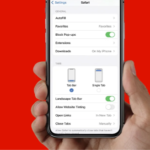Have you ever wondered why there’s a ticking clock when it comes to making a PPI claim? Why is there a deadline that seems so unforgiving? Well, my curious readers, today we are here to unravel the mystery behind these time limits and shed light on the importance of understanding deadlines for your PPI claim. So fasten your seatbelts and join us on this journey as we delve into the reasons why time plays such a crucial role in reclaiming what’s rightfully yours.
Introduction to PPI Claims and their Time Limit
Payment Protection Insurance, also known as PPI, was a widely mis-sold financial product in the UK. It was often sold alongside loans, credit cards, mortgages or other forms of credit to protect borrowers against unexpected events such as illness, job loss or death. However, it was later discovered that many consumers were sold PPI without their knowledge or understanding and were not eligible for the policy.
As a result of this mis-selling scandal, the Financial Conduct Authority (FCA) introduced a time limit for making PPI claims. This deadline has now passed on 29th August 2019, meaning that any new claims submitted after this date will not be considered by banks and lenders. In this section, we will discuss what exactly is a PPI claim and why there was a time limit imposed.
What is a PPI Claim?
A PPI claim, or Payment Protection Insurance claim, is a legal process that allows consumers to seek compensation for mis-sold PPI policies. In simple terms, PPI was an insurance product that was often added onto loans. Credit cards, mortgages and other forms of credit. The purpose of the policy was to cover repayments in case. The borrower became unable to make them due to unforeseen circumstances such as illness, job loss or death.
However, it was later revealed that many banks and lenders had been selling these policies without properly explaining. Their terms and conditions or assessing whether the borrower actually needed the coverage. This resulted in millions of people being sold expensive PPI policies that they could not benefit from or were unaware of having.
Result In 2011
As a result, in 2011, the Financial Conduct Authority (FCA) introduced a deadline for making PPI claims after numerous complaints and investigations into mis-selling practices. This deadline was set for August 29th, 2019 and aimed to give consumers enough time to review their finances and submit a claim if they believed they had been mis-sold PPI.
So why exactly was there a time limit for making a PPI claim? Well, firstly it allowed banks and lenders to draw a line under this scandal and focus on compensating those who were genuinely affected. Without a deadline, there would be no end in sight for processing claims which would have been costly and time-consuming for both financial institutions and consumers alike.
Moreover, setting a deadline also encouraged consumers to take action sooner rather than later. Many people were unaware that they had been mis-sold PPI and may not have realised it until the deadline was looming. By setting a deadline, it prompted individuals to review their financial records and make a claim if necessary.
A PPI claim is a way for consumers to seek compensation for being sold an unnecessary or unsuitable PPI policy. The deadline for making these claims has now passed. But there are still some exceptions for certain circumstances such as exceptional circumstances or ongoing complaints. If you believe you were mis-sold PPI. It’s best to seek advice from a reputable claims management company or contact your bank directly.
Why Was There a Deadline for PPI Claims?
The deadline for PPI claims was put in place by the Financial Conduct Authority (FCA) as a way to bring closure to the widespread mis-selling of Payment Protection Insurance (PPI). PPI was often sold alongside loans, mortgages, and credit cards, with the promise of providing financial security in case of illness, redundancy or other unexpected events. However. It was later revealed that PPI policies were often mis-sold to consumers. Who did not understand what they were purchasing or did not need it at all.
The mis-selling of PPI went on for decades and affected millions of people in the UK. In fact, according to the FCA, banks and other lenders have paid out over £36 billion in compensation to customers who were mis-sold PPI. As a result, the FCA decided to implement a deadline for making PPI claims – August 29th, 2019. This means that after this date, no new claims can be made for mis-sold PPI.
But why was there a need for a deadline? Here are some reasons behind the decision:
1. To provide closure:
The first and most important reason for setting a deadline was to bring an end to the continuous flow of PPI claims. The FCA’s aim was to give both consumers and businesses certainty on when this issue would finally be resolved. It also meant that banks and lenders could start moving on from this scandal without any further disruptions.
2. To encourage people to make their claims:
The FCA believed that by setting a deadline, it would encourage those who had not yet made a claim to do so. This was because many people may have been putting off making a claim, thinking they had plenty of time. The deadline acted as a reminder for these individuals to make their claims before it was too late.
3. To prevent future mis-selling:
By imposing a deadline, the FCA hoped to deter banks and lenders from engaging in further mis-selling practices. If there was no time limit for making PPI claims, there would be no urgency for banks to address this issue and ensure that they were not mis-selling PPI in the future.
4. To save time and resources:
Handling PPI claims is a costly and time-consuming process for both consumers and businesses. By setting a deadline, the FCA aimed to reduce the burden on the financial industry and free up resources that could be better used elsewhere.
5. To protect the industry’s reputation:
The PPI scandal damaged the reputation of the financial industry as a whole. By implementing a deadline, the FCA wanted to show. That action was being taken to address this issue and restore trust in the industry.
The deadline for PPI claims was put in place to provide closure, encourage people to make their claims. Prevent future mis-selling, save time and resources, and protect the reputation of the financial industry. While the deadline has now passed, consumers can still make a claim. If they have exceptional circumstances that prevented them from making a claim before the deadline.
How the PPI Deadline was Set and Extended
The PPI (Payment Protection Insurance) deadline. Which was initially set for August 29th, 2019, has been a hot topic in the financial world for quite some time now. Many people have questioned why there was even a time limit for making a claim and how this deadline came to be. In this section. We will delve into the history behind the PPI deadline and its subsequent extension.
The origins of the PPI scandal can be traced back to the late 1990s when banks began aggressively selling payment protection insurance alongside loans, credit cards, and mortgages. This insurance was meant to cover loan repayments in case of unexpected events such as illness or job loss. However, it soon became evident that these policies were being mis-sold to customers who did not need or want them.
Claim Deadline Setting
Setting a deadline gave certainty to both consumers and firms. About how long they had to make a claim or resolve any outstanding issues. It also allowed firms to focus on handling claims and providing redress rather than dealing with new complaints about PPI.
However, as the deadline drew closer, concerns were raised about the number of people. Who were still unaware of PPI or had not yet made a claim. In response to these concerns. The FCA was announced in May 2019. That it would be launching a two-year-long campaign to raise awareness of the PPI deadline.
The campaign was aimed at reaching out to those who may have been affected by PPI mis-selling but had not yet made a claim. It involved various marketing activities such as TV and radio adverts, social media campaigns, and direct mailings.
As a result of this campaign and other efforts from consumer groups and banks. There was a significant increase in the number of PPI claims being made. This prompted the FCA to announce another extension to the deadline – February 29th, 2020.
What Happened if You Missed the Deadline?
Missing a deadline can have serious consequences, especially when it comes to important matters like making a PPI claim. The deadline for submitting PPI claims has now passed. But it’s important to understand what would have happened if you missed the deadline.
Firstly, it’s important to note that missing the PPI claims deadline means. That you are no longer able to make a claim for mis-sold PPI. This means that if you were mis-sold PPI and were hoping for a refund or compensation. You will not be able to do so once the deadline has passed.
Financial Conduct Authority
The reason for this is because the Financial Conduct Authority (FCA) set a deadline of August 29th 2019 for all PPI claims to be submitted. This was done in order to bring an end to the ongoing scandal of mis-sold PPI and provide closure for both consumers and banks.
If you missed this deadline, your bank or lender will not accept any further claims for mis-selling of PPI. They will also not be obligated to review any previously rejected claims even if new evidence has come up.
This means that any potential refunds or compensation that you may have been entitled to will no longer be available. It’s important to understand that the FCA has made it clear that there will be no extensions or exceptions made for those who miss the deadline.
However, if you miss the deadline and are no longer able to make a claim, your debts will remain unpaid and this could negatively impact your credit score. This is especially important to consider for those who are planning on taking out loans or mortgages in the future.
Making a PPI Claim after the Deadline
If you have missed the deadline for making a PPI claim, you may be wondering if there is still any chance of getting your money back. The answer is yes, it is still possible to make a PPI claim even after the official deadline has passed. However, the process may be more complicated and require additional steps compared to making a claim within the deadline.
Before diving into how to make a PPI claim after the deadline, let’s first understand why there was a time limit in the first place. In 2011, the Financial Conduct Authority (FCA) set a deadline for consumers to make PPI claims due to widespread mis-selling practices by banks and financial institutions.
However, many people were unaware of this deadline or did not realise they had been mis-sold PPI until after it had passed. As a result, thousands of individuals are now inquiring about their options for making a PPI claim after the deadline.
The good news is that you can still file a complaint with your bank or lender regarding your mis-sold PPI policy. The first step would be to contact them directly and explain your situation. You can also seek assistance from reputable claims management companies who have experience in handling late PPI claims.
Deadline Claim
When making an after-deadline claim. It will be important to provide evidence that shows. Why you were unable to make your complaint before the original deadline. This could include things like medical records, proof of a significant life event, or evidence that you were not aware of the mis-selling until after the deadline.
It’s also worth noting that some banks and lenders may still choose to investigate and pay out late PPI claims even though the official deadline has passed.
If your bank or lender rejects your complaint for being outside of the deadline. You can escalate your case to the Financial Ombudsman Service (FOS). They have the power to investigate and make binding decisions on disputes between consumers and businesses.
While it is still possible to make a PPI claim after the deadline. It may require extra effort and possibly involve additional steps. If you believe you have been mis-sold PPI but missed the original deadline, it’s best to act quickly and seek advice from a reputable source.
Conclusion:
In conclusion, while the deadline for making a PPI claim has passed. It is still essential to act now if you have a potential claim. Seeking professional advice from a reputable claims management company. Can help you understand your options and potentially receive compensation through the Plevin scheme. Do not delay any further; take action now to ensure you receive the compensation you are entitled to.











